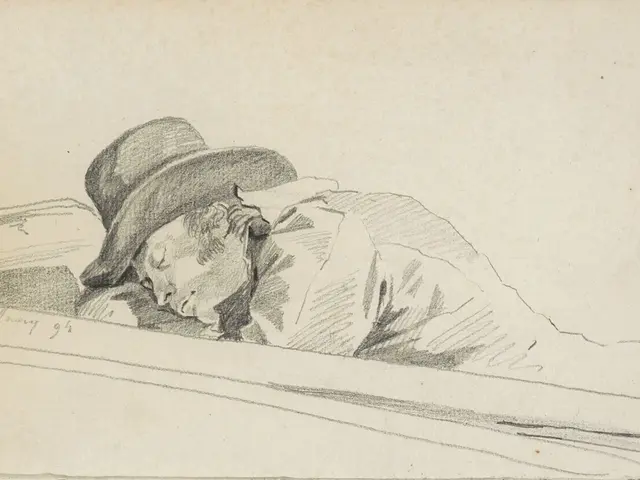The Variability in Dream Recall: Why Some Individuals Retain Every Dream Whilst Others Quickly Forget Them
Dreams, a mysterious aspect of human consciousness, have long been a subject of fascination and study. Recent research has shed light on the factors that influence our ability to recall these nocturnal adventures.
Younger people, it seems, are more likely to recall detailed dream narratives compared to their older counterparts. As we age, we become more likely to remember dreaming without retaining specific details. This age effect on dream recall is thought to be linked to changes in cognitive processes and sleep architecture.
The connection between daydreaming and dream recall is intriguing. Both involve attention to internal mental experiences and comfort with spontaneous, unguided thought. Frequent daydreamers, in fact, are champion dream rememberers.
The sleep architecture also plays a significant role in dream recall. People who sleep longer but spend less time in deep sleep have dramatically better dream recall than those with shorter, more intense sleep cycles. This suggests that longer periods spent in lighter sleep stages, where dream memories can be properly encoded, contribute to better recall.
Interestingly, the attitude towards dreams is the strongest predictor of dream recall. People who value dreams and consider them meaningful and important are significantly more likely to wake up remembering their nocturnal adventures.
The attitude effect on dream recall operates independently of actual dream content or vividness. Vulnerability to interference, or how easily memories are disrupted by competing information, also plays a crucial role. People who are easily distracted or whose memories are readily influenced by new information tend to lose dream memories more quickly upon waking.
Seasonal variations in dream recall have also been observed. People remember significantly fewer dreams during winter months compared to spring and autumn. This seasonal pattern suggests that environmental factors, possibly light exposure, temperature, or seasonal mood changes, influence dream memory formation.
The likelihood of an adult dreaming and remembering those dreams is influenced by various factors. Stress, fatigue, sleep position, external stimuli, and personal psychological traits all play a role. For instance, stress and tiredness increase dream occurrence or recall, while sleep position can affect the vividness and themes of dreams. External stimuli during sleep may be incorporated into dreams, aiding recall.
Understanding the factors that influence dream recall opens possibilities for those who want to improve their dream recall. Experimenting with factors like adjusting sleep schedules, practicing mindfulness, or paying more attention to internal mental experiences could potentially enhance dream recall.
In summary, dream recall has little to do with dream content and everything to do with the dreamer's mental patterns and sleep characteristics. By understanding these factors, we can gain a deeper insight into the mysteries of human consciousness.
Read also:
- EU's ban on bean exports from Nigeria results in an annual loss of $363 million for the country, according to AAPN.
- Rapid action required: Scientists urgently working to freeze a severely endangered tree species to prevent its extinction
- Proposal for workforce radiation safety directive requested by the Commission in the face of risk exposure.
- New York City Council Proposes Legislation to Eliminate Fluoride from Public Water Supply







